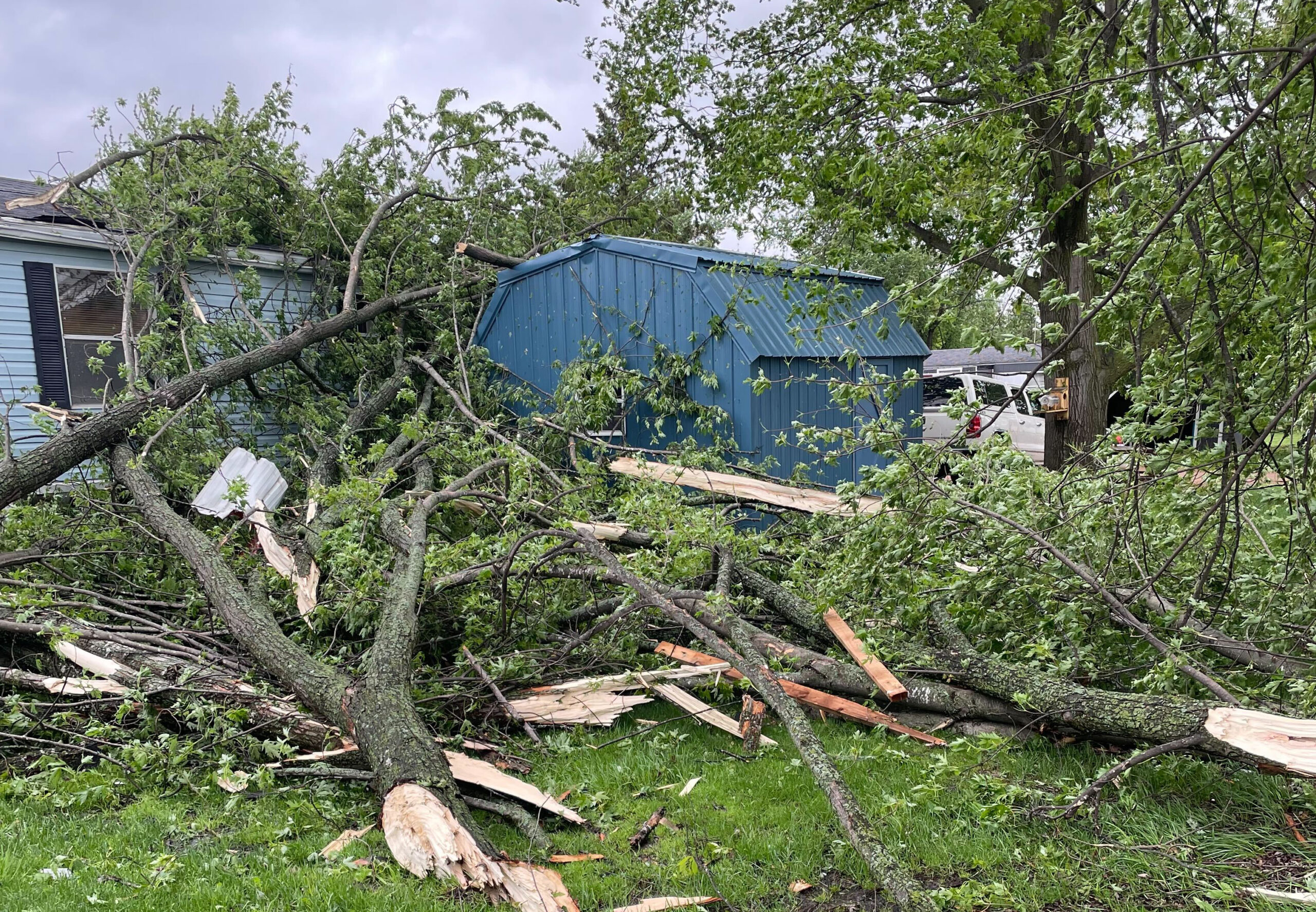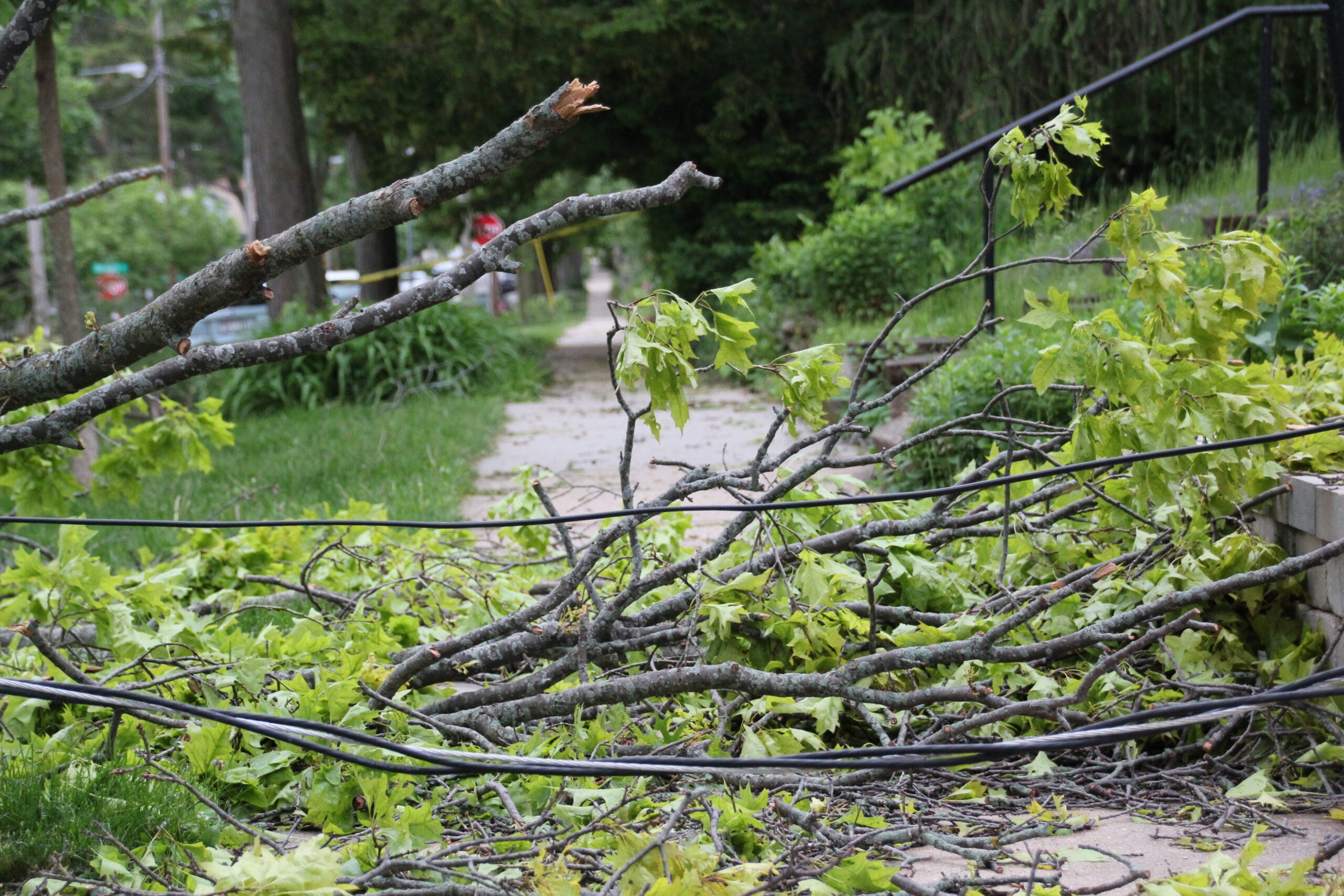Spring brings out flowers and wildlife . . . it also brings out scammers. Our consumer protection experts are here to talk about home improvement scams, door-to-door sales, storm chasers, and more.
Featured in this Show
-
Beware Of 'Storm Chasers' This Spring, Say Consumer Protection Experts
Spring in Wisconsin often means severe and potentially dangerous weather. Unfortunately, that can also mean damage to one’s home.
If a resident finds themselves needing a contractor in the days following a springtime storm, two local consumer protection experts want people to be wary of “storm chasers.” These are people who come in from out of state, follow the path of a recent storm, and go door-to-door offering to fix storm damage for a low price.
“What happens quite frequently, unfortunately, is that they take the money and then blow out of town without doing any work,” said Sandy Chalmers, assistant deputy secretary with the Wisconsin Department of Agriculture, Trade and Consumer Protection.
Chalmers said it pays to do research before committing to a repair, even if it’s a fairly urgent need.
“Use a local company that you know. Somebody that your friends and neighbors have recommended,” Chalmers said. “If there’s problems down the road, you want a local business that you can go back to and check on the warranty and any problems.”
That said, not everyone who goes door-to-door offering services is a scammer. But Chalmers noted it’s important to remain vigilant and ask questions.
“Use a healthy dose of skepticism when somebody comes knocking at your door,” she said. “Look at their license plate and see whether they’re from Wisconsin or from out of state before you hand over money.”
It’s not just storm chasers, however, that might show up at a door in the coming months.
“Just like the contractors that chase the storms, there are waves of people who come into this state during certain times of year to sell different kinds of goods,” said Michelle Reinen, director of the Bureau of Consumer Protection within the Wisconsin Department of Agriculture, Trade and Consumer Production. “We see it with windows, meat, televisions, magazines, alarm companies. There’s a whole spectrum of different kinds of goods that are sold that way.”
Regardless of what they’re selling, Reinen said a legitimate door-to-door salesman should be up-front and transparent.
“When they come to the door, they should tell you who they are, what they’re selling, give you a full price, and because they’ve come to your door, a three day right-to-cancel so you can change your mind,” she said.
If a door-to-door salesman is really pushing someone hard to buy their item or service, that’s often a red flag.
“Some of these door-to-door salesmen that have a fraudulent item to pitch use extremely high-pressure sales tactics,” Chalmers said. “They will do anything to get inside your house, and then they won’t leave.”
To that end, Chalmers recommends against letting a door-to-door salesman into the house.
“It’s a lot easier to say no to somebody who’s standing on your front porch than it is to get them outside of your house once they’re in,” she said.
If a homeowner is talking to a fraudulent seller or have done business with one, they can file a door-to-door complaint online with the Wisconsin Department of Agriculture, Trade and Consumer Protection, or by calling 800-422-7128.
Episode Credits
- Larry Meiller Host
- Jill Nadeau Producer
- Sandy Chalmers Guest
- Michelle Reinen Guest
Wisconsin Public Radio, © Copyright 2024, Board of Regents of the University of Wisconsin System and Wisconsin Educational Communications Board.



